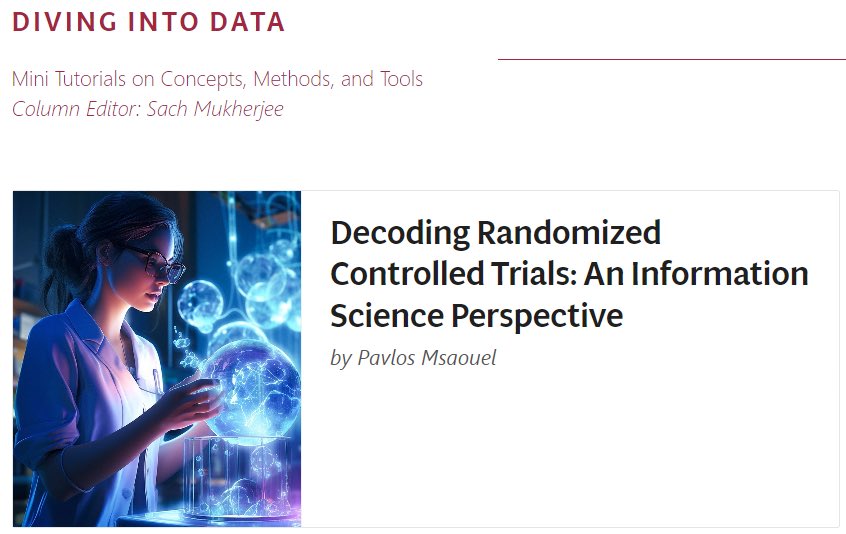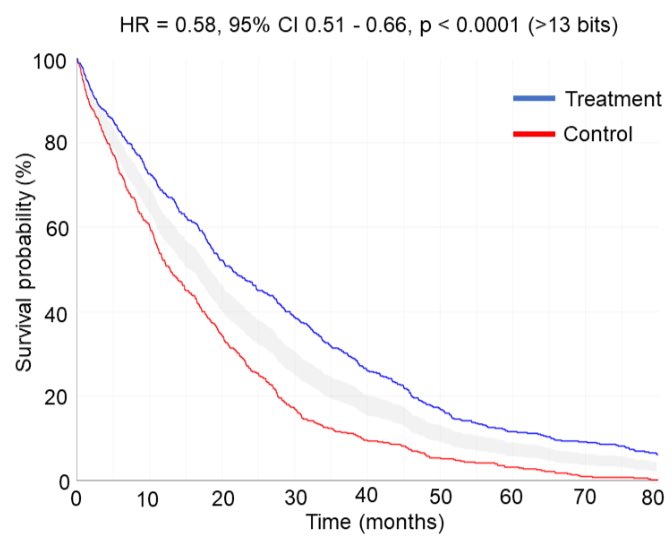
Sander Greenland
@Lester_Domes
Followers
4K
Following
469
Statuses
2K
Joined August 2017
@f2harrell @TheodoreLytras @noah_greifer In practical reality no marginal measure is transportable. The best we can get are risks conditional on measured covariates. The resulting conditional RDs are average RDs over unmeasured pure predictors; the conditional ORs are neither average ORs nor "useful" without a baseline.
1
0
8
@f2harrell @TheodoreLytras @noah_greifer That misses a key point: subject-specific ORs from a regression aren't average ORs over unmeasured covariates even if the model is correct, whereas the s-s RDs will be average RDs. That is one reason the literature on transportability focuses on RDs, eg
1
2
2
@f2harrell @TheodoreLytras @noah_greifer Every model we use in our practice is false, imposing unjustified homogeneity assumptions on the outcome. Marginal collapsible effect measures like RD are average effects across covariate levels even when derived from false (eg logistic) models and the covariates are unmeasured.
2
0
2
@f2harrell @TheodoreLytras @noah_greifer "It assumes that older patients die as slowly as young ones". No it doesn't. Even without that assumption the marginal OR can show the correct (unconfounded) treatment effect on the entire-group odds yet be closer to 1 than any stratum OR.
0
0
1
@f2harrell @TheodoreLytras @noah_greifer 2>For a simpler explanation of noncollapsibility of odds and odds ratios, with numeric examples and citations to advanced studies of the phenomenon in causal and regression models, see the 2-part series
1
0
4
Congratulations Pavlos on another fine contribution!
Excited to publish @TheHDSR an overview on interpreting randomized controlled trials focusing on information. By prioritizing this fundamental principle, previously obscure statistical concepts reveal their intrinsic beauty:
1
5
37
RT @tingyife: Here is a new commentary from the journal Science Communication 'Forcing a Deterministic Frame on Probabilistic Phenomena: A…
0
4
0
Here is a shorter version of "There's Not Much Science in Science", given in a slightly different context, for the International Conference on Using Epidemiological Studies in Health Risk Assessments, Berlin Nov. 2023:
One of the main issues is that those who most need certain information are less likely to reach or choose to consult the sources of such information. Nevertheless, this seminar is definitely among the knowledge that we all need. Thanks to @Lester_Domes
0
18
51
RT @AlessandroRov19: One of the main issues is that those who most need certain information are less likely to reach or choose to consult t…
0
4
0
@f2harrell @drjgauthier That's one good way to assess assumptions but others are useful, such as examining assumptions in relation to contextual information and switching to assumptions that fit the context better, eg choices other than proportional odds:
0
0
3
@f2harrell @mendel_random @HarvardChanSPH @jonathanasterne @bengoldacre @StabellBenn @stephensenn @The_MRC @mrc_ieu @MarcusMunafo @deb_cohen Agreed. We've been advocating that for a few decades, eg and there has been a fair bit since under the heading of probabilistic bias analysis, eg see more cites and coverage at
1
4
13
@ErikVanZwet @guido_imbens @goodmanmetrics @NEJMEvidence Andrew has posted a blog page for the paper at which among its cites are our 2008 and 2014 debates on informative Bayes and Bayesian vs frequentist diagnostics to show how our thinking has evolved.
0
8
46
RT @ErikVanZwet: Don't like p-values? We're presenting a completely new interpretation in the context of clinical trials. With Andrew Gelma…
0
391
0
@f2harrell @drjgauthier @MaartenvSmeden @GSCollins @Richard_D_Riley @StatModeling B>As with all methods its practical value needs topic-specific evaluation in real examples. Its statistical validity can only show that the method can provide statistical measures of compatibility between data and method assumptions (including asymptotics)
0
2
4
@drjgauthier @f2harrell @MaartenvSmeden @GSCollins @Richard_D_Riley @StatModeling 2>Warranted uncertainty is lower when selection for observation and treatment are random rather than merely unknown. Thus the method is founded on the same best-case scenario as in almost all stat methods and risks creating false certainty (overconfidence)
0
0
6
@JohnDeaconTX @drjohnm @VPrasadMDMPH @adamcifu @Sensible__Med @f2harrell @ehlJAMA Grad students are rarely sole authors. Their senior authors are usually in a position to politely request to follow the guidance in articles that advise against "significance" terms, offering those articles in support. In my experience with >100 submissions this failed only once.
0
1
3




